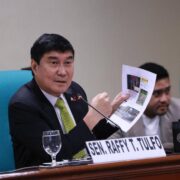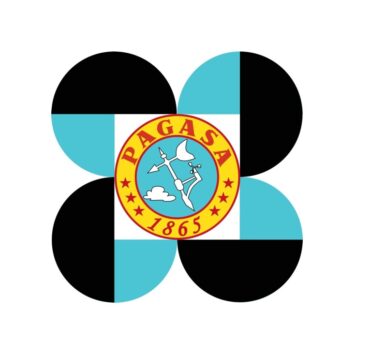Brother of NDFP consultant reported missing

A younger brother of a former consultant for the National Democratic Front of the Philippines (NDFP) during the failed peace talks with the Duterte administration has gone missing and the human rights group Karapatan on Thursday strongly suspected that he may have been abducted by state forces.
IT consultant James Jazmines, 63, could be the latest victim in a series of enforced disappearances when he failed to return home from dinner on Aug. 23 with his cycling buddies at Purok 4, Barangay San Lorenzo in Tabaco City, Albay, according to Karapatan secretary general Cristina Palabay.
Jazmines is the youngest brother of Alan Jazmines, who was released from political detention in 2016 when then President Rodrigo Duterte reopened talks with the NDFP, the Marxist umbrella that represented the Communist Party of the Philippines (CPP) and the New People’s Army (NPA) in negotiations to end the over half-century-old insurgency.
Alan, a former economics professor at the Asian Institute of Management, served as a consultant for the NDFP on economic and social reforms. When Duterte scrapped the talks in 2017, he went underground.
LFS paper editor
According to Palabay, James was a psychology graduate of the University of the Philippines Diliman, where he joined the League of Filipino Students (LFS) and was the editor of its official paper, Commitment, and then executive director of the Amado V. Hernandez Resource Center, a cultural institution.
After college, he served as information officer for the labor group Kilusang Mayo Uno from 1988 to 1992. By the mid-2000s, he worked as a consultant on information technology for a nongovernmental organization (NGO). Since then, he has worked freelance in the IT sector.
‘Palit-ulo’ scheme
According to Palabay, the Jazmines family has been the subject of surveillance, threats and harassment “over the decades,” mainly by the Criminal Investigation and Detection Group of the Philippine National Police.
“Until now, we are still looking for (James), along with his family and biker friends,” she said. She said that they were unaware of any possible motive or groups behind his disappearance, except for state forces looking for his brother.
“We believe that his disappearance is either the latest in the military’s arsenal of dirty tricks to force his brother Alan to surface, or is a vicious example of ‘palit-ulo,’ given the military’s continuing failure to arrest Alan,” she said.
Palit-ulo, literally exchange heads, is slang for switching places between a wanted person and someone else, usually a loved one, who is being held in custody or as a hostage.
James, originally from Quezon City, was renting a house in Albay where he does all his home-based work as a freelance IT consultant and where all of his cycling buddies live, Palabay said.
“After he had his dinner with his buddies, he was supposed to go home and when they never got a text message that he safely got home, that’s what worried his friends and they found it weird since we were told that he normally sends a message to them once he gets home,” she told the Inquirer.
One of his friends even went to his house to check if he just immediately went to sleep after their dinner but to his surprise, James was not there, she said.
His friends looked for him on the road leading to his house, on their biking route and even in hospitals before they informed his family. The family informed the police that he was missing days later, Palabay said.
Before James disappeared, Karapatan reported 21 cases of enforced disappearances during the Duterte administration and 13 since President Marcos took office. All of them were political or environmental activists or human rights defenders.
Karapatan disclosed that James went missing on Thursday, the eve of the International Day of the Victims of Enforced Disappearances.
Terror tactic
The United Nations said that enforced disappearance “has frequently been used as a strategy to spread terror within the society.”
“The feeling of insecurity generated by this practice is not limited to the close relatives of the disappeared, but also affects their communities and society as a whole,” it said, adding that what was once “the product of military dictatorship” can now be committed in places of internal conflict to repress political opponents.
It raised concerns about harassment of human rights defenders, relatives of victims, witnesses and legal counsels; the use of counterterrorist activities by states; and “widespread impunity” for enforced disappearance.
At the House of Representatives, the opposition Makabayan bloc on Thursday called on the committee on human rights to investigate the “escalating judicial attacks” against human rights defenders and civil society groups.
In House Resolution No. 1985, Kabataan Rep. Raoul Manuel, Gabriela Rep. Arlene Brosas, and ACT Teachers Rep. France Castro said such attacks “prevent the delivery of relief, livelihood and social services to tens of thousands of beneficiaries nationwide, and threaten the life … of NGO staff and supporters.”
Spurious charges
As of 2024, they said at least 59 development workers from 21 NGOs across the country were being harassed with “spurious” charges related to terrorism.
There are 55 people from 19 organizations who had been charged with terrorism financing, and four others were accused of “engaging government soldiers in a firefight,” they said. INQ

















